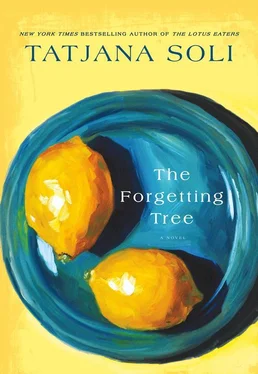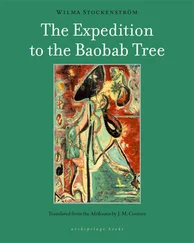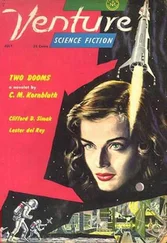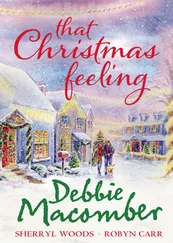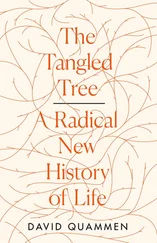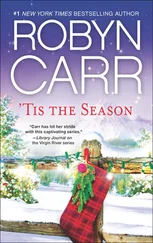The experience determined her on a new course: visiting other citrus farms. She would go to the Middle East to see their orange groves, then to Italy, specifically Sicily, where blood oranges thrived in the volcanic soil. Maybe after that Spain.
The idea that the same activity was going on in unknown places of the earth, places in which she had no language or custom or anything else in common, made Hanni unimaginably happy. It gave her a feeling like that of people who experience religion, an unexpected communion. But preparing to leave Thailand, she was bitten by a sand flea, and days later she was so ill she had to cancel further travel plans. The hotel manager was frightened that the old, white lady tourist might die in the room, requiring all kinds of remedy and rituals to erase the bad luck.
By the time Hanni arrived back home, she was delirious. Forster and Claire checked her into the hospital with a 105-degree temperature. An expert of tropical diseases from the university said there was no cure, only hope.
Hanni did not resent the foreign-borne disease. She considered it yet another land, another room, she had not yet entered in life. The ideas of illness and idleness as alien to her as the idea of death — destinations to keep open-minded about after such a long and work-filled life. It was her folly in leaving where she belonged, however temporarily. Shock like that of a transported plant. She comforted herself with the thought that maybe heaven consisted of orange groves.
In her last hours, fluids refused to stay in her body. Her face appeared wooden, mummified; her lips shriveled as if seeking counsel within. She took Claire’s hand.
“I didn’t believe in you at first,” Hanni said. “But you turned out to be the right person. The perfect choice.” Claire cried, but Hanni shook her head. “What I’m saying now is between women who have given their blood and sweat for the ranch. Let it go.”
Claire thought fever had taken over the old woman’s mind.
“Its time is past. Take Forster away.”
“This is our life.” Claire mourned Hanni’s passing as if she were her own mother, but never told Forster her last words, reasoning they must have been said in confusion.
* * *
With the bequest from Hanni, Forster, Claire, and Octavio decided to make the biggest gamble for the ranch’s independence yet: branch out into organics with its higher profit margins. Rather than its being a blessing, Claire felt a sense of foreboding in using the money in a way Hanni clearly had not sanctioned. And yet, what kind of an inheritance could not be used in the best interests of the heir?
They financed a new ten-acre parcel of lemon trees adjoining theirs from yet another farmer who had sold out and moved inland. At the auction, the farmer took their lower bid because he wanted the place to remain farmland as long as possible. If it was successful, the change to organic would be Hanni’s legacy. The turnover meant the soil would have to be amended with natural fertilizers and pesticides, no chemicals, until it tested clean under the guidelines, taking at least three or four years. If Claire had learned nothing else, it was that miracles took grueling work and utter, saintly patience.
Kidnapping the boy had been an afterthought that went bad, they said at the trial. After Claire promised money, panicked, the men grabbed him as a kind of insurance policy. When she heard that, her guilt was complete and permanent. Josh had been unafraid, Denny Larsen said. “He yelled and called me Red Skull.” A detail that broke her heart. He died that same night, when he tried to run away. The staggering one tackled him, and the boy fell, accidentally hitting his head on a rock. Not knowing what else to do, they buried the body at the farthest corner of the ranch by the lake. Small consolation, at least he had not been long at their hands. They waited for the body to be found, and when it wasn’t, they decided to try for the ransom. It seemed beyond cruelty to Claire that her little boy was already gone while she had frantically gathered the money.
* * *
After Forster lifted the boy from the earth, Claire could not bear to hand him over to strangers again. She asked Octavio if they could drive him home one last time in his pickup, the boy’s favorite place in the world. All farm children learned to drive tractors and pickups early, and within the confines of the ranch Octavio allowed Josh to sit in his lap and steer the wheel, and then drive himself. Now he handed the keys to Forster to drive while Claire sat in the truck’s bed, next to the swaddled body. “Come,” she said, but Octavio shook his head and walked.
“My heart breaks,” he said at the house, head bowed between Claire and Forster, after the body had been driven away. Octavio felt guilt, not that he had done anything wrong, but that he had been under the tree earlier and had not known. How was it possible that he had not sensed anything?
* * *
Claire could not explain her deepening despair after the arrest of the men and learning the truth. The facts were flat and dry, disappointing in a way she could not describe. Denny Larsen got the idea of burglarizing the house while working the party. They had never intended to hurt anyone. The outcome random as an act of nature. They did not have the driven power of evil that the act deserved.
It was the headline story in the local news, and the church overflowed with both known and unknown faces. A feeling of expectation was in the air that the Baumsargs appear broken, in some way show the shame of victimhood. Claire stood alone, stranded at the door of the church, until Octavio rose, gave her his arm, and escorted her to her seat. She walked with a kind of unadorned, bone strength, sat regal and remote in the front pew, until Forster arrived with the girls. When asked to say a few words, she stood in the front of the church in silence for such a time that Forster got up to rescue her.
“‘I am going to him and he will not come back to me,’” she quoted, and allowed Forster to lead her away.
* * *
She refused to have the reception at the ranch after the funeral; instead it was held at the recreation room of the church. The crowd showed an undeniable fascination at the horror of the crime. Looky-loos who wanted to gawk at them in their grief.
When Claire came back to the house, she threw off her shoes, dragging herself from room to room in her mourning dress. Sounds came from Josh’s room. Dizzy, she tiptoed to the door, opened it, and found Paz and the girls playing with his trains and cars, passing a liquor bottle. Even in laughter, they looked so forlorn and abandoned, her motherly instinct to scold evaporated. Why not mourn in this childish way?
The girls, red-faced, froze when they saw her in the doorway. They had been giggling and, she suspected, were a little drunk.
Claire sat down on the floor next to them. She pointed to the bottle of Baileys Cream.
“Do you like that?”
Lucy shook her head in a noncommittal way, as if the bottle had forced its way into her hand. “Not really.”
“When I was your age, we drank vodka and orange juice.”
“Really?”
Claire nodded.
“We shouldn’t have been drinking,” Gwen said.
Claire shrugged. “Our parents couldn’t smell it on our breath.”
“We pray for him,” Paz said.
“That’s good.” She liked that the verb was in the present tense, that Josh was still alive in those terms.
“Mr. Relicer gave me a twenty-dollar bill,” Lucy said. “Do I have to give it back?”
“No, definitely keep it.”
* * *
After the attention from the outside world ebbed away, a stasis enveloped the family. Like the series of fault lines that riddled the land, the stillness was deceptive, hiding thousands of faint tremors that originated deep inside, that silently displaced the ground without shaking it. On the surface, nothing of note. Everything that went on happened within, subterranean reckonings.
Читать дальше
